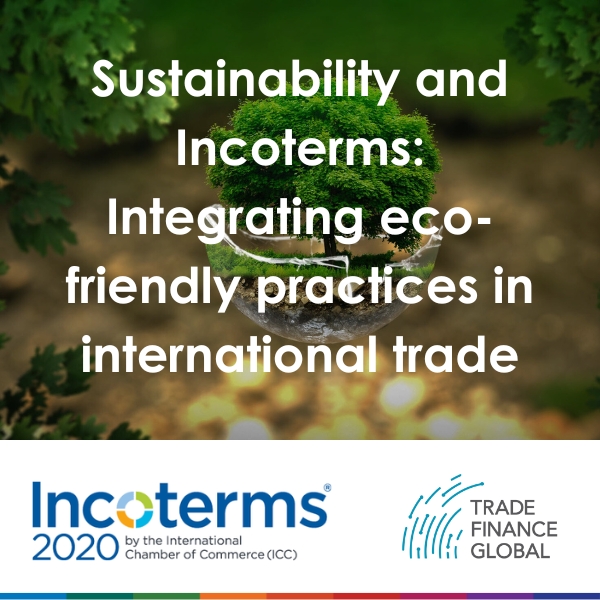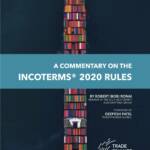Sustainability and Incoterms: Integrating eco-friendly practices in international trade [UPDATED 2025]


Access trade, receivables and supply chain finance
We assist companies to access trade and receivables finance through our relationships with 270+ banks, funds and alternative finance houses.
Get StartedContent
Sustainability and Incoterms: Integrating eco-friendly practices in international trade [UPDATED 2025]
As the world moves towards more sustainable practices, incorporating sustainability into international trade has become increasingly important.
Understanding these aspects can help companies reduce their environmental impact and meet regulatory requirements for sustainability.
Understanding sustainable shipping and Incoterms
Sustainable shipping Incoterms refer to the use of Incoterms in ways that promote environmentally friendly practices in international trade.
This includes selecting Incoterms that optimise transportation efficiency, reduce carbon footprints, and encourage green logistics solutions.
Sustainability in international trade helps reduce the environmental impact of shipping and logistics, which helps meet the growing demand from consumers and regulators for eco-friendly practices.
Key components of sustainable shipping with Incoterms
Efficient transportation is a fundamental aspect of sustainable shipping, and choosing Incoterms that promote efficient transportation routes and methods can significantly reduce carbon emissions. For instance, selecting terms that allow for bulk shipping or multimodal transport can minimise the environmental impact.
Green traders can also use Incoterms to optimise their supply chains by reducing waste and energy consumption. For example, coordinating with suppliers and buyers to consolidate shipments can lead to fewer trips and lower emissions.
Incorporating eco-friendly packaging materials and methods into Incoterm agreements can further support sustainability goals. This includes using recyclable or biodegradable materials and reducing packaging waste.
Encouraging local sourcing of materials and products within agreements can reduce the need for long-distance transportation, thereby lowering carbon emissions.
Best practices for implementing sustainable shipping Incoterms
Green traders can promote sustainability throughout their supply chains by selecting the right Incoterm for each shipment. For example, FCA (Free Carrier) can facilitate multimodal transport, reducing the reliance on more carbon-intensive modes like air freight.
Collaborating with partners is also important, as working closely with suppliers, buyers, and logistics providers can help identify opportunities for reducing environmental impact. For instance, working with suppliers to source more sustainable materials or using technology to improve packaging efficiency can help reduce emissions and waste.
Technology can also help with other aspects, such as route optimisation and emission tracking, providing insights and analytics to support sustainability goals.
As with any sustainability initiative, regular review is important to stay current on the latest standards and regulations and identify other areas for improvement.
Since different jurisdictions have different environmental regulations, traders must stay current on the regulations in the importing and exporting countries and include contract clauses that address compliance with environmental standards.
This includes adhering to documentation and reporting requirements related to sustainability.
FAQs
- LEARN MORE ABOUT INCOTERMS
- LATEST INCOTERMS NEWS















